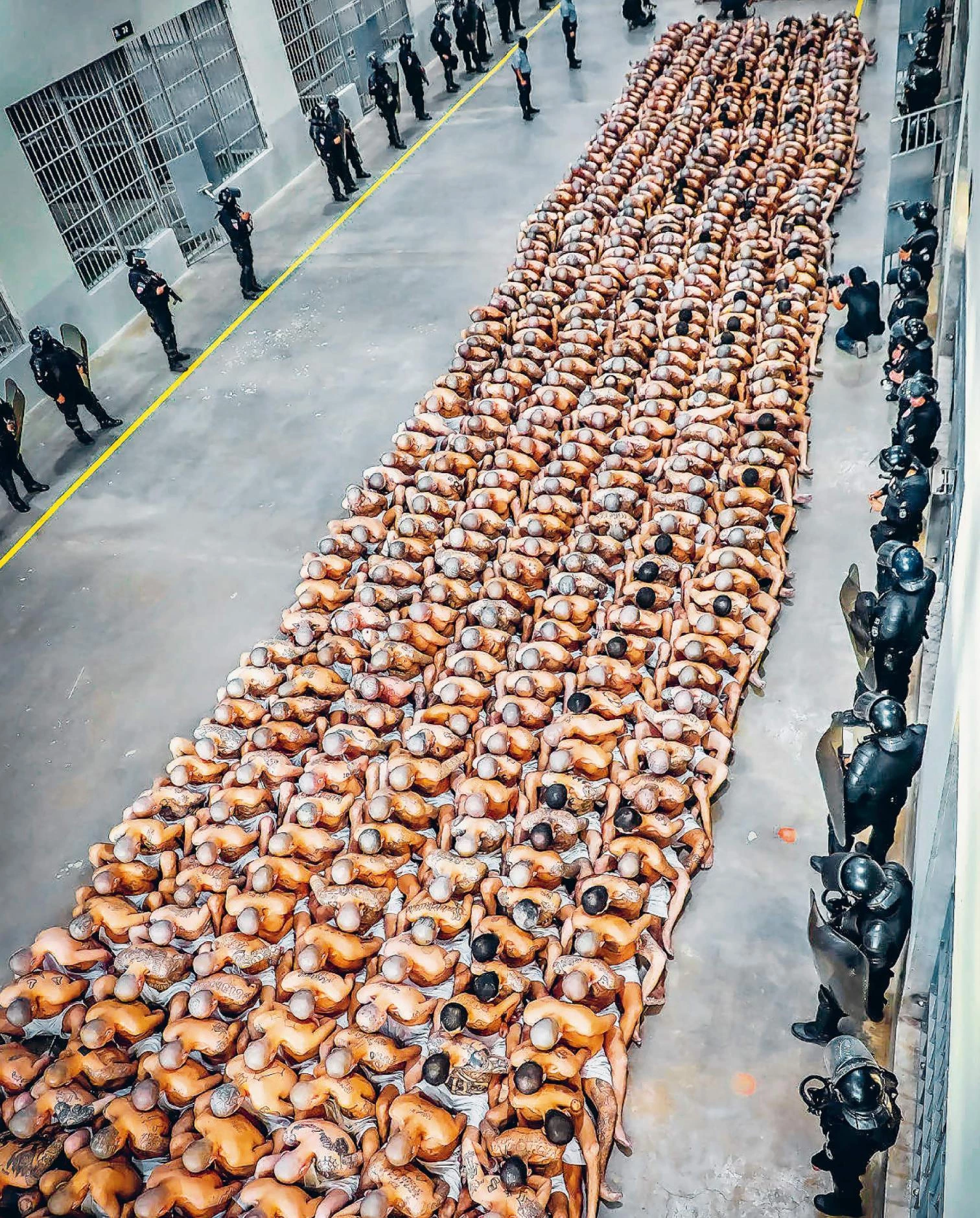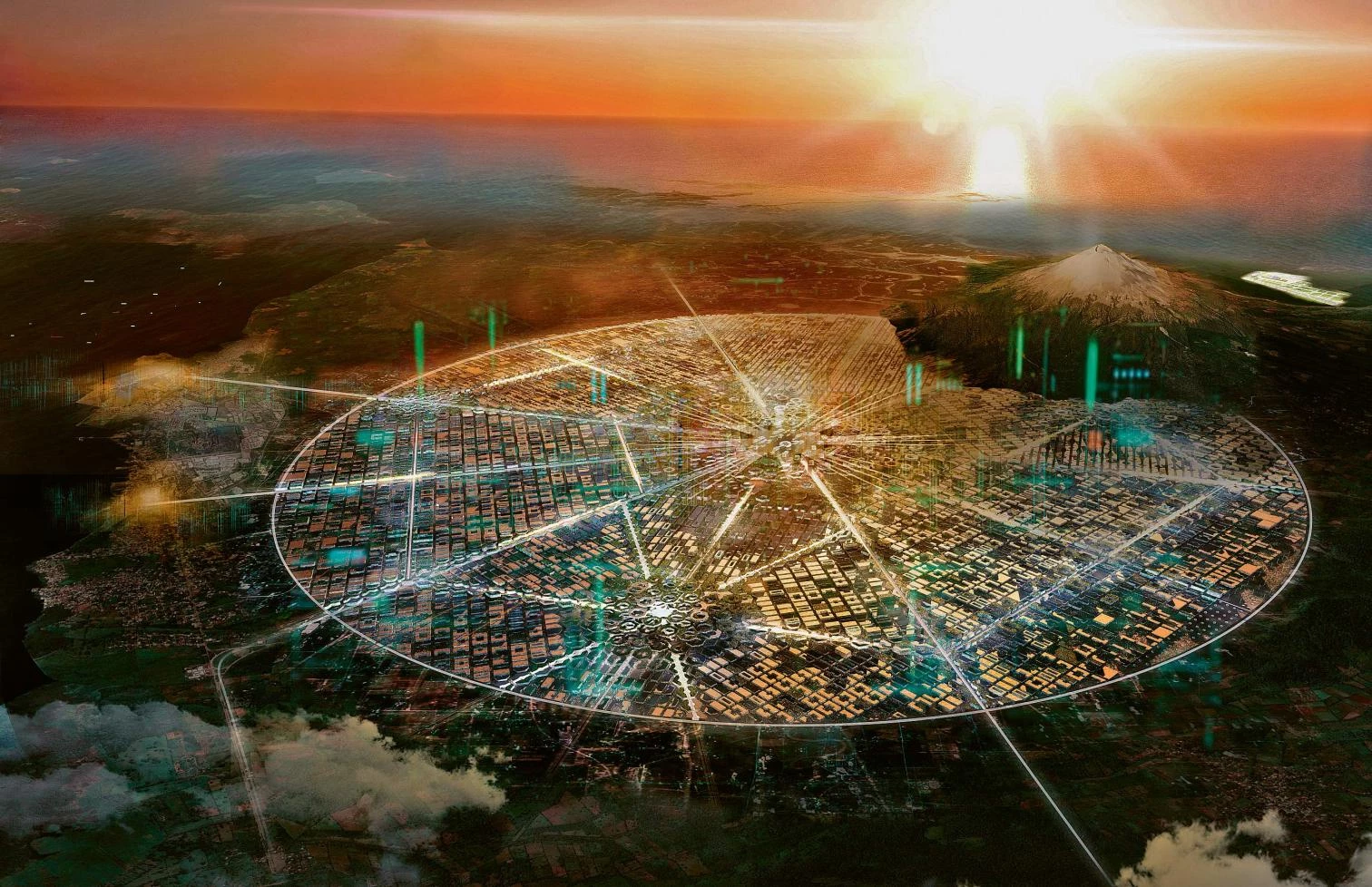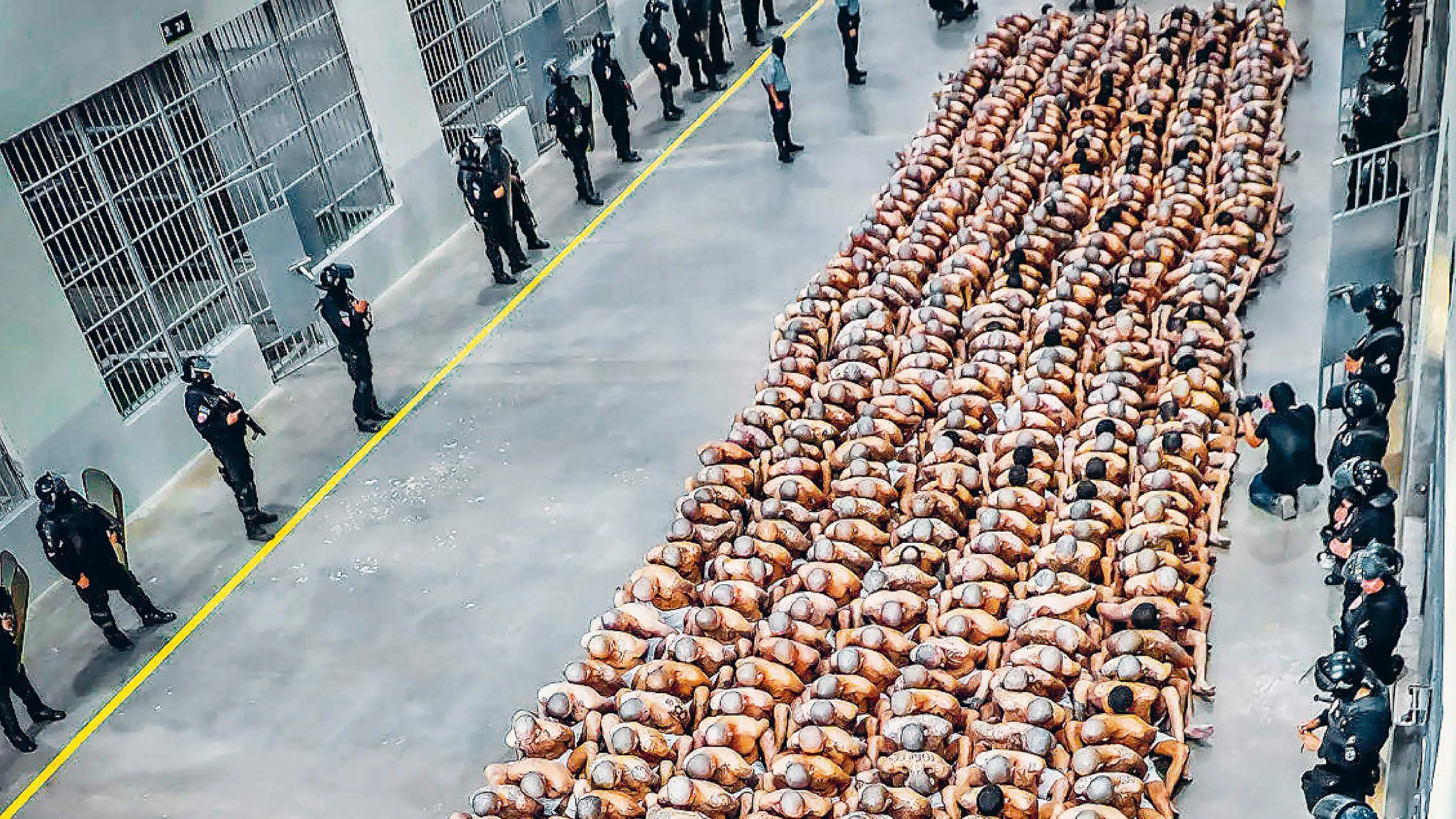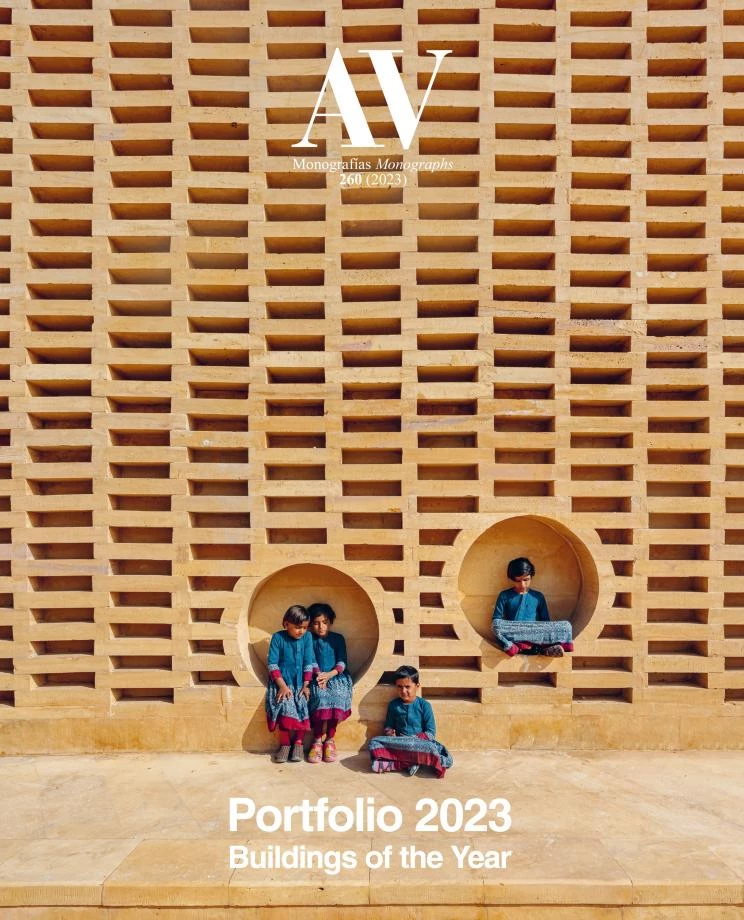
Transfer of gang members to the Terrorist Confinement Center © Gobierno de El Salvador
Dystopia exists, and can be found in El Salvador. In this small Central American country of abrupt geography, tropical climate, and the highest population density on the continent, President Nayib Bukele has launched an unprecedented social experiment, archaic and futuristic at the same time. Traditional in its moral values, which exclude abortion or euthanasia, and visionary in the adoption of the bitcoin as legal tender and emblem of a new city that wants to turn the country into a Singapore with volcanoes, the authoritarian and populist regime of this ‘millennial’ president is building a dystopia backed by public opinion. Although he has been compared to Trump and Bolsonaro, he has not fractured the country, but rather brought it together around his postmodern combination of populism and technology. Of Palestinian descent and with business experience, mayor of the capital as member of the left-wing Frente Farabundo Martí de Liberación Nacional, Bukele became president at 37 with a charismatic prestige that enabled him to establish his own party.
El Salvador suffers the scourge of violent gangs, which have caused 120,000 deaths in the thirty years since the end of the civil war in 1992, a conflict that left 75,000 victims and established a two-party regime broken up in 2019 by the rise of Bukele, whose first step was to confront the 70,000 members of the maras through the Territorial Control Plan, which included a megaprison – built in less than seven months – for 40,000 inmates. The country, which reached over 100 homicides per 100,000 inhabitants, has reduced the rate to 7.8 in 2022, but this improvement has been achieved with a state of emergency that suspends constitutional guarantees, and with the brutal discipline shown in the images released by the government, where the tattooed bodies and shaved heads of gang members evoke both the horror of an industrial slaughterhouse and the nightmare of a zombie inferno: that naked, defeated army is a bill of indictment of a society where so many young people are unable to find any other fraternity than the sinister one of the maras.
And in sharp contrast with this human landscape of desperation and decay, the country builds its digital reverse with an oneiric project, a circular city at the foot of the Conchagua volcano designed by Mexican architect Fernando Romero and baptized Bitcoin City, because it hopes to attract technology companies linked to cryptocurrencies, which are offered tax exemptions and the possibility of mining digital money using the energy from volcanic activity, which would also power the city itself. The city, to be built together with a new airport and a seaport, would be financed with Bitcoin-backed Volcano Bonds, but both the volatility of cryptocurrencies and the downgrading of the country’s credit rating cast shadows over this science fiction plan, the star project of President Bukele. Between this new digital Jerusalem and the satanic Babylon of the Terrorism Confinement Center, El Salvador offers a dark mirror for times that make it hard to distinguish between utopian dreams and dystopian monsters.

Fernando Romero, Bitcoin City







